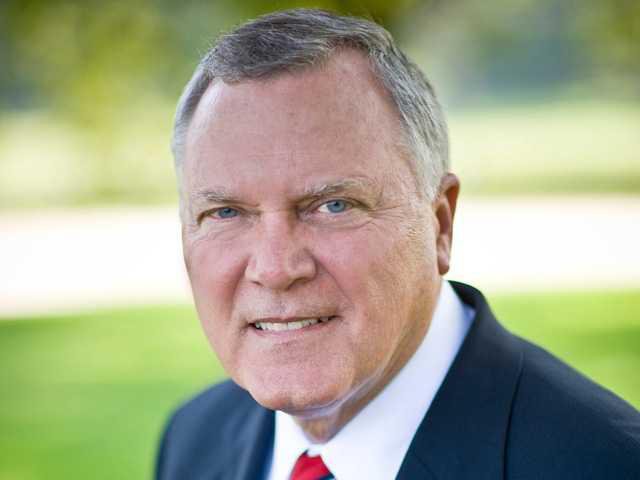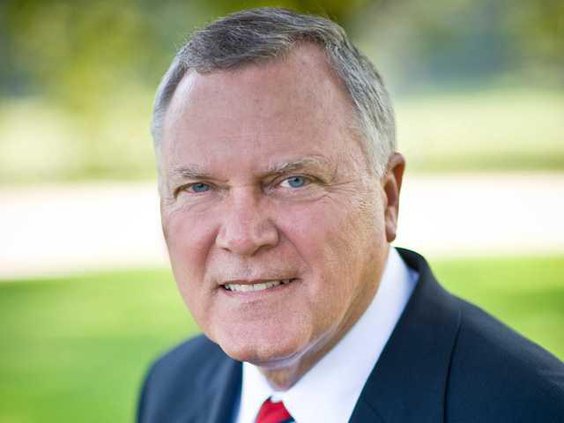Georgia's business community and other opponents of a bill protecting those who object to same-sex marriage called Thursday for Gov. Nathan Deal to veto it, likely starting weeks of intense lobbying on the Republican.
Some religious and political officials hailed the bill's passage on Wednesday, thanking GOP leaders of the General Assembly for increasing "religious liberty" protections.
Republican leaders, meanwhile, hoped the measure would end years of legislative sparring over various protections for people acting on religious belief, rebutted by charges of discrimination from gay-rights advocates. The U.S. Supreme Court's decision this year legalizing gay marriage sharpened the debate.
The measure would prevent government penalty against faith-based organizations that refuse to serve someone if it would violate a "sincerely held religious belief" or hire someone "whose religious beliefs or practices or lack of either" violate its religion. It includes language based on a federal "religious freedom restoration act," preventing government from burdening religious belief.
Public employees who refuse to perform their duties, such as a clerk issuing marriage licenses, would not be covered. The bill says it doesn't permit discrimination prohibited by federal or state law.
It also would allow religious officials to refuse performing gay marriages and protects any individual who refuses to attend a marriage that conflicts with their faith.
Lawmakers on Wednesday didn't immediately send the bill to Deal, who faces a May 3 deadline to act.
Deal hasn't addressed the version that cruised through the legislature in several hours on Wednesday. But he has asked lawmakers for a compromise that protected religious belief "without setting up a situation where we could be accused even of allowing or encouraging discrimination."
"We do not have a belief, in my way of looking at religion, that says that we have to discriminate against anybody," Deal, a Baptist, told reporters weeks ago. "If you were to apply those standards to the teachings of Jesus, I don't think they fit."
Deal's religious roots, though, have not been his focus as governor. He campaigned for re-election to a second and final term by touting Georgia's ranking by trade publications as the top state to do business. Corporate leaders in Georgia said they're hopeful Deal will consider the boycott threats levied against Indiana after 2015 passage of a "religious freedom" law, along with his prior concerns about the bill.
"I think Gov. Deal appreciates all the good work that has been done during his time in office, and I don't think he wants to see it undone," Jenner Wood, a SunTrust Bank executive and chairman of the Metro Atlanta Chamber's board, said.
The Atlanta chamber is among more than 500 companies and groups in a coalition called Georgia Prospers that formed this year to oppose any legislation that could harm the state's reputation. It includes such recognizable companies as AT&T, Coca-Cola, Delta Air Lines, Home Depot and UPS.
Mike Griffin, the Georgia Baptist Mission Board's representative at the Capitol and one of the bill's biggest supporters, said it would act as "insurance" for religious people. Supporters often cite examples of students cited for hazing after holding a Christian foot-washing ceremony on a public campus or a student denied space for a prayer group at a public school.
"It's something you want to have before you need it," Griffin said. "The bottom line is protecting people from government action."
The Georgia Republican Party's chairman also praised state lawmakers, noting delegates at a state GOP convention supported passage of a "religious freedom" bill.
"We applaud and thank state lawmakers for listening to grassroots Republicans," Chairman John Padgett said.
Lawmakers across the country have proposed a variety of religious exemptions for opponents of same-sex marriage this year, prompted by similar pressure.
Georgia lawmakers could have tamped down criticism by creating protections for LGBT people or minorities, said Robin Fretwell Wilson, a family law specialist at the University of Illinois Law School.
Wilson advised legislators in Utah on a 2015 law granting religious exemptions while creating gay-rights protections and called the Georgia bill a "mashup" of legal exemptions for religious people or organizations. States that legalized gay marriage before the Supreme Court's ruling created similar exemptions for religious organizations like adoption agencies, she said.
Georgia's bill "is a one-sided deal," she said. "And people don't like one-sided deals."

